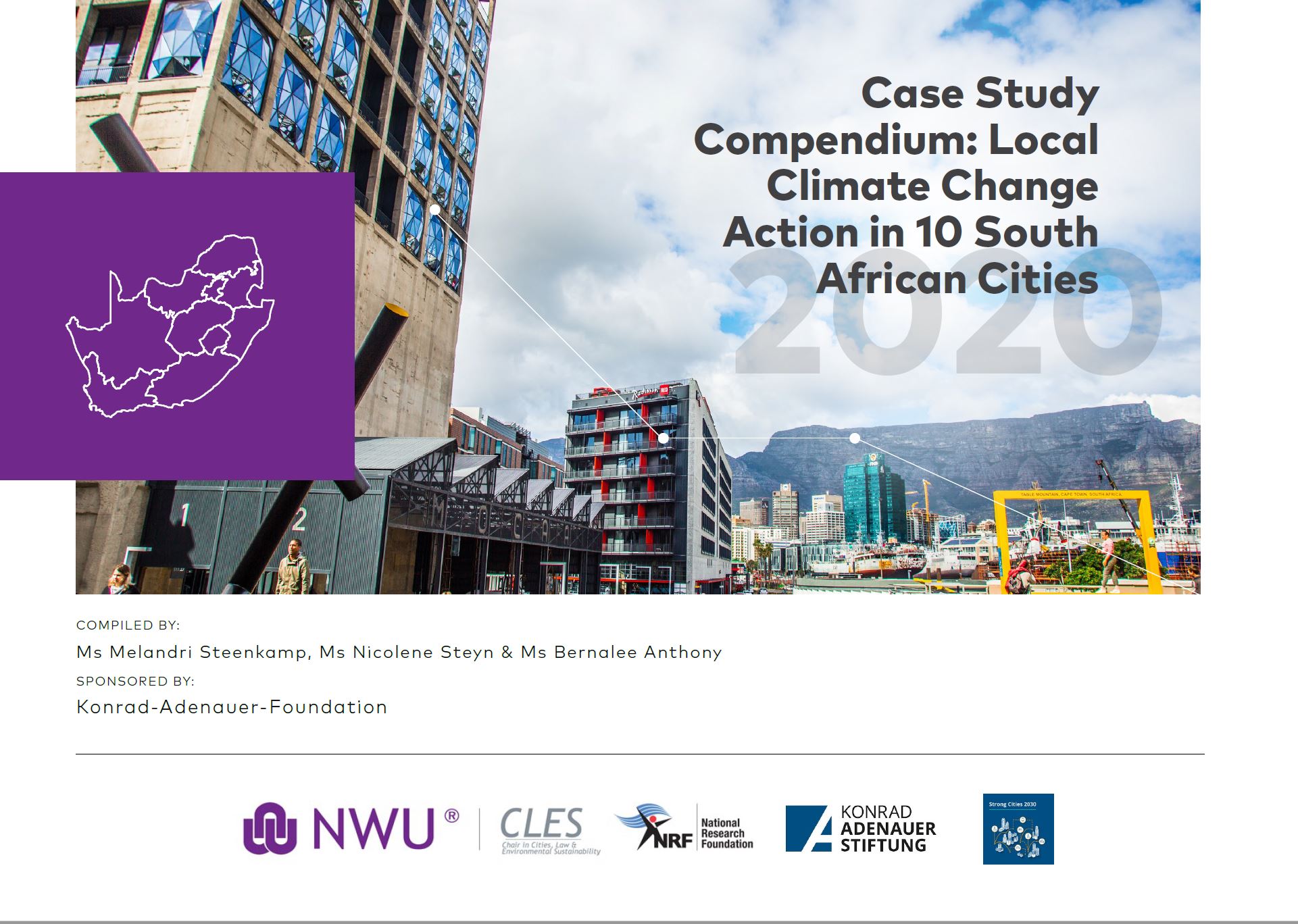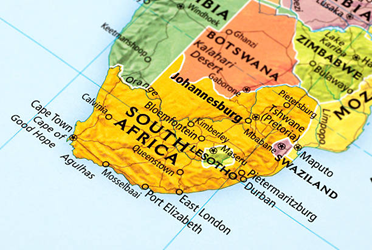Environmental governance tools for medium-sized South African municipalities
In partnership with the Konrad-Adenauer Foundation, CLES embarked on an inquiry into the use and suitability of local governance instruments for improved environmental sustainability in medium-sized cities and towns in 2022.
The project information and findings can be accessed here.
Climate Action Responses in South African Municipalities
CLES, in partnership with Konrad Adenauer Stiftung (KAS), engaged in a project concerning local law and policy initiatives towards climate action in South Africa. Overall, the project set out to determine, share, and record information on how a collection of ten municipalities in South Africa are reacting to climate change (mitigation and adaptation) in their local laws and policies, spatial and management plans, organizational structure, projects, programmes, and initiatives. In doing so, the team collated sources and developed an online depository of information on climate action responses in the ten municipalities. Furthermore, Drs Melandri Steenkamp and Nicolene Steyn, with editorial assistance from Ms Bernalee Anthony, developed case studies based on the municipalities' learning experiences and local actions with respect to their climate mitigation efforts and climate adaptation initiatives. Finally, in conjunction with UN-Habitat, CLES and KAS hosted an online Urban Law Day on 29 and 30 October 2020, with the theme: "The City, Climate Change and Vulnerability: Leveraging Law for Climate Resilience".
The CLES online depository can be accessed here.
This project has since been extended to a more in-depth exploration of local climate change responses in a selection of cities of southern Africa. See the project description below.
Local Law and Policy Transitions in Southern African Cities Towards Climate Resilient Development
From November 2021 – February 2022 Prof Anél du Plessis, Dr Nicolene Steyn and Dr John Rantlo conducted extensive desktop research into the state of local law and policy transitions in a total of 8 cities in the southern African countries of South Africa, Namibia, Zimbabwe, and Botswana.
This project drew on the understanding that on top of its high urbanisation rate, the Southern African region experiences a decrease in mean precipitation, an increase in pluvial flooding as well as dryness and fire weather conditions, among other pressures. Legal, policy and programmatic interventions and transitions are urgently needed.
The team collated information on the cities of Harare, Bulawayo, Windhoek, Swakopmund, Gaborone, Francistown, Durban, and Cape Town. The team investigated, for example, local energy, water and spatial planning bylaws and municipal-level climate change policy developments. This research was done against the background of the urban and climate change profile of the countries under investigation as well as the powers and duties and functions of municipalities. The contextual research also involves the collection of information on the involvement of these cities in global city networks and international urban diplomacy as well as in public-private partnerships and other cooperation agreements.
This project was funded by an Alexander von Humboldt Digital Cooperation Alumni Fellowship awarded to Prof Anél du Plessis in partnership with Prof Helmut Aust from the Freïe Universität, Berlin.
The project has since been extended with funding from the Konrad-Adenauer Foundation: Regional Programme Energy and Climate Change based in Nairobi, to also focus on countries such as Kenya and Malawi.
The most recent research report on this project can be accessed here.
City-led climate litigation in African Cities
We aim to keep an updated index of all city-led climate litigation in African Cities. This initiative was launched by Prof Oliver Fuo in June 2024 and currently managed by Dr Wendy Muzangaza and Dr Lourens Erasmus. All relevant documentation in this respect will be uploaded to the CLES depository on an ongoing basis.
UN-Habitat Urban Lex
UrbanLex is a free global database that aims to improve access to legislation that regulates the urban environment. It was designed to serve as a tool to fill the gap in knowledge that has arisen in urban law-making, and serves as a research tool for urban stakeholders at every level.
The database features laws on critical areas of the urban setting that are essential to the sustainability and development of legal frameworks in urban areas.
CLES continuously uploads urban-related laws to this e-vault of knowledge. The database can be accessed here.





